Key Takeaways
1. Master Your Brain: Understand L-mode and R-mode thinking
R-mode is very important to your day-to-day work: it acts as your search and retrieval engine for long-term memory and ideas that are "in process."
Dual-CPU model of the brain. The brain operates with two distinct processing modes: L-mode (linear, logical, language-based) and R-mode (rich, holistic, intuitive). L-mode is responsible for step-by-step processing and verbal communication, while R-mode excels at pattern recognition, creativity, and holistic thinking.
Leveraging both modes. To maximize cognitive potential, it's crucial to engage both modes and facilitate their cooperation. Techniques to enhance R-mode thinking include:
- Increasing sensory input (e.g., using tactile objects during problem-solving)
- Drawing and visual thinking exercises
- Meditation and mindfulness practices
- Creating metaphors and analogies
By understanding and consciously utilizing both modes, you can dramatically improve problem-solving, creativity, and overall cognitive performance in your work and personal life.
2. Embrace the Dreyfus Model: Journey from novice to expert
Experts are the primary sources of knowledge and information in any field. They are the ones who continually look for better methods and better ways of doing things.
Five stages of skill acquisition. The Dreyfus model outlines the progression from novice to expert:
- Novice: Relies on context-free rules and needs clear instructions
- Advanced Beginner: Starts recognizing situational aspects
- Competent: Develops conceptual models and can troubleshoot
- Proficient: Sees situations holistically and can self-correct
- Expert: Relies on intuition and tacit knowledge
Implications for learning and teaching. Understanding these stages helps in:
- Tailoring learning approaches to your current skill level
- Providing appropriate guidance to others based on their stage
- Recognizing the importance of both rule-based and intuitive thinking
By identifying your current stage in various skills, you can more effectively plan your learning journey and appreciate the value of experience-based intuition as you progress towards expertise.
3. Harness Your Intuition: The key to expert-level performance
Experts work from intuition, not from reason.
Cultivating intuition. Intuition is not mystical, but a result of extensive experience and pattern recognition. To develop it:
- Gain diverse experiences in your field
- Practice deliberate reflection on past decisions and outcomes
- Engage in "mental simulations" of various scenarios
Balancing intuition and analysis. While intuition is crucial for expert performance, it's important to:
- Verify intuitive insights with analytical thinking
- Recognize situations where intuition might be biased or unreliable
- Use intuition as a starting point for deeper investigation
By consciously developing and appropriately applying intuition, you can make faster, more effective decisions and reach higher levels of performance in your domain of expertise.
4. Debug Your Mind: Recognize and overcome cognitive biases
Being aware of these bugs is the first step to mitigating them.
Common cognitive biases. Our thinking is prone to various systematic errors, including:
- Confirmation bias: Seeking information that confirms existing beliefs
- Anchoring: Over-relying on the first piece of information encountered
- Availability heuristic: Overestimating the likelihood of events we can easily recall
Strategies for mitigation. To combat these biases:
- Actively seek disconfirming evidence for your beliefs
- Consider multiple perspectives before making decisions
- Use structured decision-making processes to reduce the impact of biases
- Regularly reflect on and challenge your own assumptions
By acknowledging and actively working to overcome these "bugs" in our thinking, we can make more rational decisions and improve our problem-solving abilities across all areas of life.
5. Learn Deliberately: Set SMART objectives and manage your knowledge portfolio
Recipe 26 Plan your investment in learning deliberately.
SMART objectives for learning. Set goals that are:
- Specific: Clearly defined and unambiguous
- Measurable: Quantifiable progress and end result
- Achievable: Realistic and attainable
- Relevant: Aligned with broader career or personal goals
- Time-bound: With a clear deadline or time frame
Knowledge portfolio management. Treat your skills and knowledge like a financial portfolio:
- Diversify: Learn a mix of complementary skills
- Invest regularly: Consistent learning beats sporadic cramming
- Review and rebalance: Periodically assess and adjust your skill set
- Consider risk/reward: Balance between safe, established skills and potentially high-reward emerging technologies
By approaching learning with this deliberate, structured method, you can ensure continuous growth and maintain relevance in a rapidly changing professional landscape.
6. Gain Experience Effectively: Play, fail, and groove neural pathways
Recipe 35 Explore, invent, and apply in your environment—safely.
Learning through play. Embrace a playful, exploratory approach to learning:
- Experiment without fear of failure
- Engage in "hard fun" – challenging but engaging activities
- Use games, simulations, and role-playing to explore concepts
Productive failure. Create a safe environment for failure:
- Set up sandboxes for risk-free experimentation
- Analyze failures for insights and learning opportunities
- Cultivate a growth mindset that views failures as stepping stones
Mental practice and visualization. Leverage the brain's inability to distinguish between vivid imagination and real experience:
- Use mental rehearsal to prepare for challenging tasks
- Visualize successful outcomes to prime your brain for success
- Practice "inner game" techniques to reduce performance anxiety
By combining these approaches, you can accelerate skill acquisition, build confidence, and develop the neural pathways necessary for expert performance.
7. Manage Focus: Increase attention and optimize your current context
Recipe 39 Learn to pay attention.
Cultivating focused attention. In an age of constant distractions, deliberately managing focus is crucial:
- Practice mindfulness meditation to improve concentration
- Use techniques like the Pomodoro method for time management
- Create a distraction-free environment for deep work
Context management. Minimize the cognitive cost of context switching:
- Batch similar tasks together
- Use tools and techniques to quickly capture and organize ideas
- Develop rituals for entering and exiting different work modes
Deliberate practice. Optimize your learning and work sessions:
- Set clear, specific goals for each practice session
- Seek immediate feedback on your performance
- Push yourself just beyond your current abilities
By mastering the art of focus and context management, you can dramatically increase your productivity, learning efficiency, and overall cognitive performance in both professional and personal pursuits.
Last updated:
FAQ
What's Pragmatic Thinking and Learning about?
- Cognitive Science Focus: The book delves into cognitive science, neuroscience, and learning theories to improve thinking and learning skills.
- Refactoring Wetware: It humorously refers to the brain as "wetware," suggesting that mental processes can be optimized like software.
- Broad Audience: While targeted at programmers, its insights are applicable to anyone seeking to enhance problem-solving and learning abilities.
Why should I read Pragmatic Thinking and Learning?
- Enhance Learning Skills: Offers practical techniques to improve learning and adaptability to new challenges.
- Real-World Applications: Emphasizes the importance of context in learning, crucial for success in any field.
- Expert Insights: Authored by Andy Hunt, it draws on extensive research and personal experience for valuable advice.
What are the key takeaways of Pragmatic Thinking and Learning?
- Active Learning: Learning should be an active process, engaging with material through exploration and practice.
- Embrace Mistakes: Mistakes are valuable learning opportunities, essential for growth and improvement.
- Diversity in Learning: Embracing diverse perspectives enhances creativity and problem-solving abilities.
What is the Dreyfus Model of Skill Acquisition in Pragmatic Thinking and Learning?
- Five Stages: The model outlines stages from novice to expert, each representing different skill levels.
- Contextual Learning: Progressing through stages involves applying knowledge in context, crucial for expertise.
- Practical Application: Helps individuals recognize their current skill level and what they need to advance.
How does Pragmatic Thinking and Learning define "wetware"?
- Brain Analogy: "Wetware" humorously refers to the human brain and its cognitive processes.
- Refactoring Mental Processes: Suggests that thinking and learning processes can be improved through practice.
- Focus on Improvement: Encourages active work on mental processes to enhance problem-solving and learning.
What are some techniques for enhancing learning mentioned in Pragmatic Thinking and Learning?
- Mind Mapping: Visualizes relationships between concepts, aiding understanding and memory.
- SQ3R Method: A reading strategy promoting active engagement for better retention.
- Deliberate Practice: Focused, intentional practice is emphasized for skill development.
How can I manage focus and attention according to Pragmatic Thinking and Learning?
- Increase Focus: Techniques like setting goals and minimizing distractions enhance concentration.
- Defocus to Focus: Allowing the mind to wander can lead to creative insights and solutions.
- Manage Interruptions: Creating a conducive environment for work improves focus significantly.
What cognitive biases should I be aware of according to Pragmatic Thinking and Learning?
- Anchoring Bias: Initial information unduly influences subsequent judgments and decisions.
- Confirmation Bias: Tendency to seek information that confirms preconceptions, leading to flawed decisions.
- Self-Serving Bias: Attributing successes to oneself and failures to external factors distorts self-assessment.
How does Pragmatic Thinking and Learning suggest I harvest insights from my R-mode?
- Image Streaming: Verbalizing mental images taps into the subconscious for insights.
- Free-Form Journaling: Writing without censorship clarifies thoughts and surfaces hidden ideas.
- Walking and Reflection: Physical activity like walking frees the mind to explore ideas.
What are some effective ways to integrate L-mode and R-mode thinking in Pragmatic Thinking and Learning?
- R-mode to L-mode Flow: Start with R-mode activities for idea generation, then transition to L-mode for analysis.
- Pair Programming: Collaborating integrates different cognitive styles, enhancing problem-solving.
- Use of Metaphors: Metaphors bridge abstract concepts and concrete understanding, facilitating insight.
How does Pragmatic Thinking and Learning address the concept of failure?
- Failure as Learning: Frames failure as essential for learning, providing valuable feedback.
- Safe Environment: Emphasizes creating an environment where failure is accepted as a learning opportunity.
- Resilience Building: Coping with failure builds resilience and adaptability, encouraging experimentation.
How can I apply the concepts from Pragmatic Thinking and Learning in my daily life?
- Implement Learning Techniques: Use mind maps and SMART goals for organizing thoughts and tracking progress.
- Practice Mindfulness: Incorporate meditation to enhance focus and reduce stress.
- Embrace Mistakes: View failure as a learning opportunity, reflecting on mistakes for future improvement.
Review Summary
Pragmatic Thinking and Learning is highly praised for its practical advice on improving cognitive skills and learning techniques. Readers appreciate the book's blend of cognitive science, psychology, and programming concepts. Many find it transformative, offering valuable insights into brain function, focus management, and skill acquisition. The Dreyfus model and tips on deliberate learning are frequently highlighted. While some criticize its simplistic style or outdated references, most reviewers recommend it for programmers and knowledge workers seeking to enhance their mental capabilities and problem-solving skills.
Similar Books


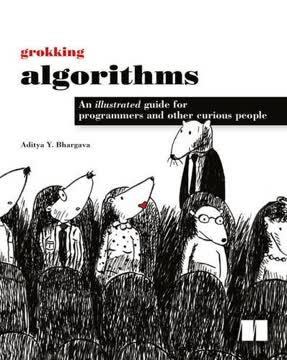

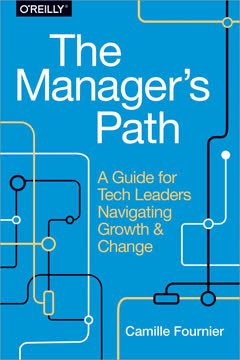
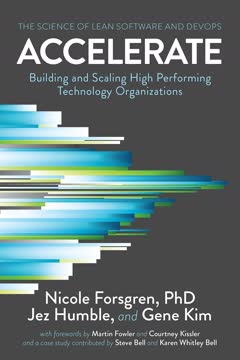
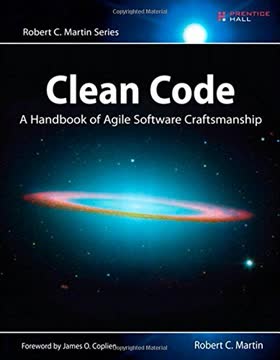


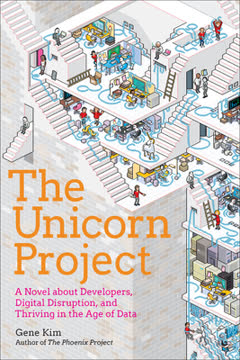
Download PDF
Download EPUB
.epub digital book format is ideal for reading ebooks on phones, tablets, and e-readers.




